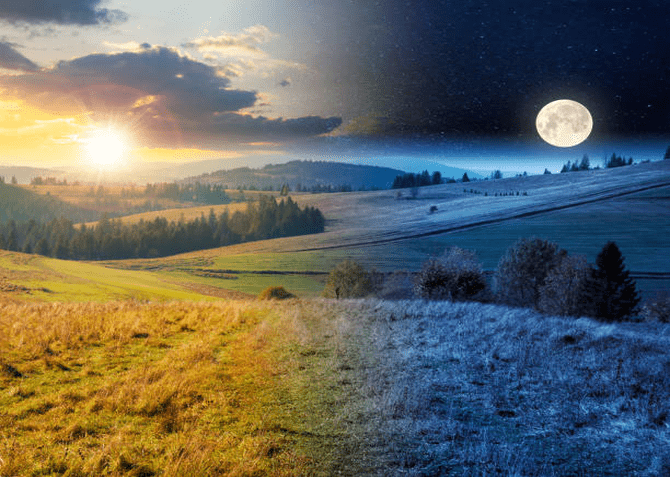
The Top Ten Things You Didn’t Know About Sleep
Do you know your knocker-uppers from your myoclonic jerks? Dormeo UK can help you!
1. Before alarm clocks were affordable or reliable, people were employed as "knocker-ups" to wake people up.
The profession started in Britain and Ireland during the Industrial Revolution and lasted well into the 1920s. A knocker-up's job was to rouse sleeping people so they weren’t late for work.
In return for a few pence a week, the knocker-up would knock at the door with a truncheon or short, heavy stick or use a long bamboo cane to reach the bedroom window. They wouldn’t leave until they were sure that their client was awake. Many policemen supplemented their income this way.
2. The sensation of falling when half asleep and jerking yourself awake? That’s a ‘myoclonic jerk’.
Have you ever gently drifted off to sleep only to suddenly jerk awake, convinced you’ve just had a fall or crashed into something? This happens in the first sleep stage during which muscle activity and eye movement really begin to slow down.
No-one really knows why these jerks occur. Some say that it's an evolutionary thing to stop ourselves falling out of trees when we were tree-dwellers, but they are perfectly normal. They seem to be more frequent in young people.
See: The Stages of Sleep
3. 12% of people dream entirely in black and white.
A study published in 2008 found that childhood exposure to black-and-white television seemed to be the common denominator. It found that people aged 25 and younger almost never dreamed in black and white but people aged over 55, who grew up with little access to colour television reported dreaming in black and white about a quarter of the time.
4. If your pillow is over 2-3 years old, you may have more company at night than you realise…
In a horrifying study of the ‘health’ of hundreds of pillows, Dr Arthur Tucker, principal clinical scientist at Barts and The London NHS Trust found that up to a third of the weight of a pillow could be made up of bugs, dead skin, dust mites and their faeces.
Yep, we are shuddering too.
See: Sleep Hub
5. Humans are the only mammals that willingly delay sleep.
All other mammals simply fall asleep when tired. Humans however, choose to work late, read, watch TV – almost anything in fact, to delay going to sleep. One theory is that this is why we suffer so much from anxiety and depression.
6. Parents of newborns miss out on 6 MONTHS of sleep in the first 2 years of their child's life.
That’s according to research conducted in 2010. Most adults need at least five hours of uninterrupted sleep every 24 hours in order to function properly but almost two thirds (64%) of parents with babies and under-twos get just three-and three-quarters hours. And even worse, 12% of those surveyed get less than two-and-a-half hours of uninterrupted sleep per night.
It goes without saying that these parents suffer a huge sleep debt which can lead to mood swings, depression, arguments and even relationship break-ups.
7. The record for the longest period without sleep is 11 days.
In 1964, 17 year old Randy Gardner, a high school student in San Diego, California, stayed awake for 264.4 hours (11 days 24 minutes).
Serious cognitive and behavioural changes were recorded during the experiment, including moodiness, problems with concentration and short term memory, paranoia, and hallucinations. However, on his final day, Gardner spoke at a press conference without slurring or stumbling his words and in general appeared to be fine.
After completing his record, Gardner slept 14 hours and 40 minutes straight and no long term psychological or physical effects were observed. It’s important to point out however, that others have died staying awake for this long.
8. Memory foam was originally developed by NASA.
Memory foam has been around a lot longer than you might think, but it wasn’t originally developed with mattresses and pillows in mind. In fact, being both very soft and highly energy absorbing, it was first developed in the 1960’s by NASA’s Ames Research Center to be used in aircraft seat cushions. Since then, it has found many other uses but is now probably best known for its use in the sleep industry.
9. Only one-half of a dolphin's brain goes to sleep at a time.
For humans and other land mammals, sleep involves partial or total unconsciousness. Not so for the dolphins. When it's time to rest, a dolphin will shut down only one hemisphere of its brain, and close the opposite eye whilst the other half of the brain monitors what's going in the environment and controls breathing functions. Within a 24-hour period, each half of the brain gets about 4 hours of sleep.
At the other end of the sleeping spectrum, a snail can sleep for 3 years straight!
10. 41% of the British population sleep in the foetal position.
According to research conducted by Professor Chris Idzikowski of the Sleep Assessment and Advisory Service nearly half of us choose to sleep in the foetal position. According to an article in Medical Daily however, the best sleeping position is on the back as this position keeps you in a neutral position with everything in alignment, avoids pressure on your joints and is good for acid reflux.
Dormeo can help eliminate the most common causes of a lack of sleep but don’t just take our word for it. All our mattresses are available in Single, Double, King and Super King sizes and come with our 15 year warranty and our 60 night Comfort Guarantee. We are that sure that you will experience the best sleep that if you don’t agree within the 60 day trial period, we'll happily refund you the cost of the mattress with our ‘No Quibble Refund’.
If you have any questions or queries, we are on hand any time to answer them, free, on 0800 625 0134.









Leave a Reply